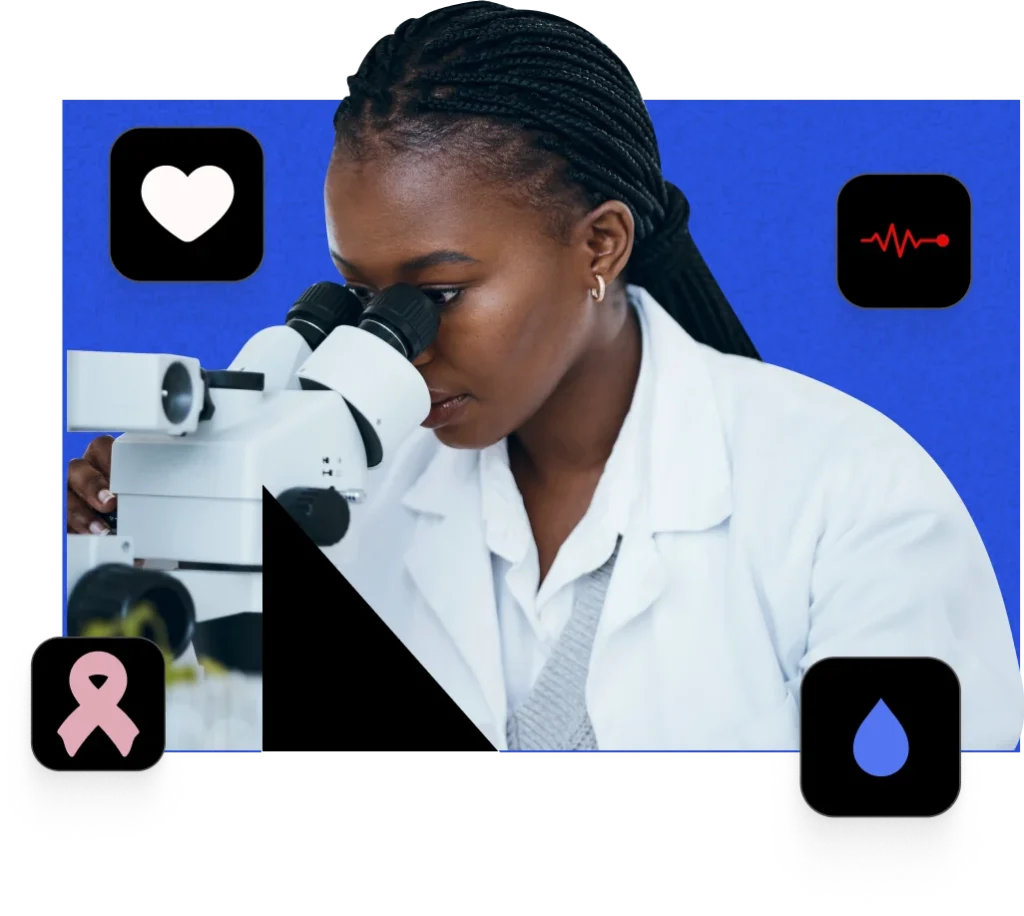
Not sure if you qualify for these studies? A member of the NOWINCLUDED medical team would be happy to speak with you. Simply select the study you’re interested in below.

For people with diffuse large B-cell lymphoma (DLBCL) or mantle cell lymphoma (MCL) who are 18 years or older.

For people with reoccurring paroxysmal atrial fibrillation (PAF) who are experiencing symptoms that don’t respond to medications.

For people experiencing ongoing symptoms of nasal congestion (stuffy nose).

For people with chronic obstructive pulmonary disease (COPD) who are past or current smokers and have a history of frequent exacerbations (flare-ups).

For people with reoccurring paroxysmal atrial fibrillation (PAF) who are experiencing symptoms that don’t respond to medications.

For people experiencing ongoing symptoms of nasal congestion (stuffy nose).
Unfortunately, not all of us are included in those decisions.
Between 2020-2021:
The history of clinical research studies involving Black participants has been marked by both harm and progress. While past injustices like the Tuskegee study highlight the need for watchfulness and ethical safeguards, measures implemented over the years aim to ensure that research benefits and protects all individuals, regardless of race.
Before joining, you’ll learn about the study, what’s involved, and any possible risks and benefits.
A group of people who are part of the Institutional Review Boards (IRBs) or Ethics Committees checks to make sure the study is fair and safe for you and others.
They’ll make sure the people joining fit the study and won’t be harmed.
They keep an eye out for any issues or side effects you might experience during the study.
Independent groups watch closely to make sure everything is going well and make recommendations based on the progress.
Investigators, research staff, and regulatory agencies (like the FDA) make sure the study is following ethical standards. Doctors and other medical professionals also help address any health concerns that come up during the study.
There’s a plan in place in case anything unexpected happens during the study.

Researchers watch people to learn about their health without doing anything to change it.
These are tests to see if new treatments work and are safe.
Researchers follow people over a long time to see how their health changes.
Researchers look at people’s health at one point in time to see how common certain things are.
Researchers talk to people to learn about their experiences and feelings about their health.
Researchers try new things to see how they affect people’s health.
Researchers study how diseases spread and what causes them.
Researchers compare people with a certain condition to those without it to see why some people get sick.
These are tests where people are put into groups randomly to see if a treatment works.
Researchers follow a group of people over time to see how certain things affect their health.
With over 100K community members across the US, join the #1 Black health platform changing how we are seen and heard in healthcare.
